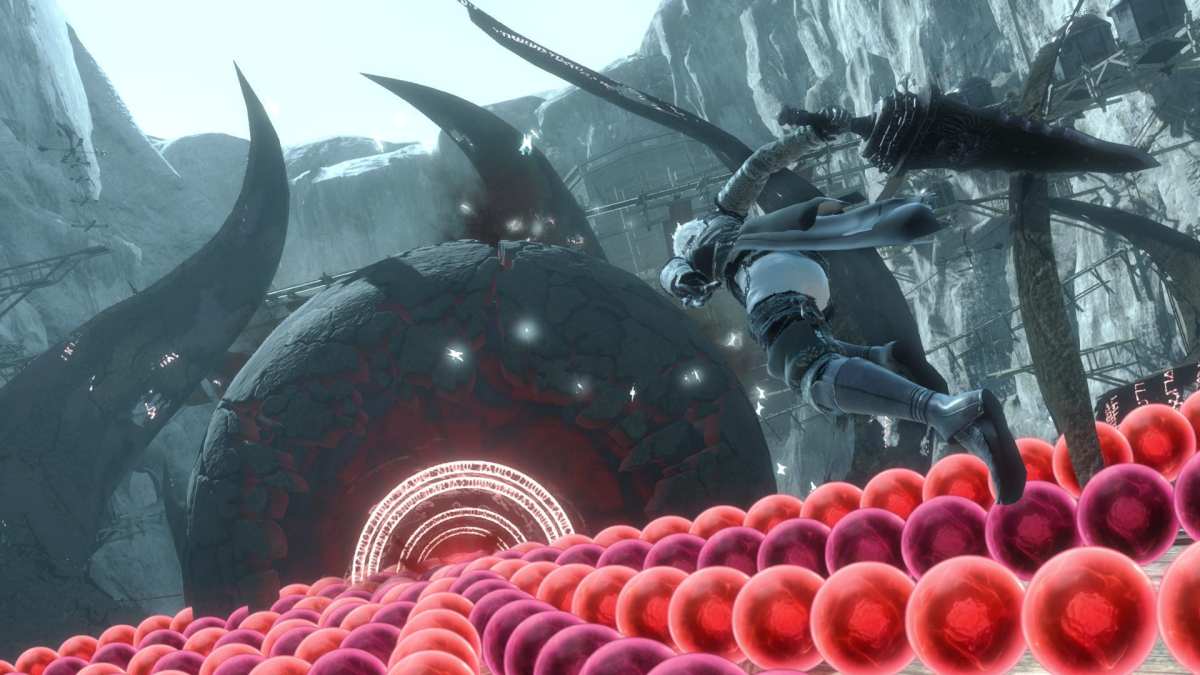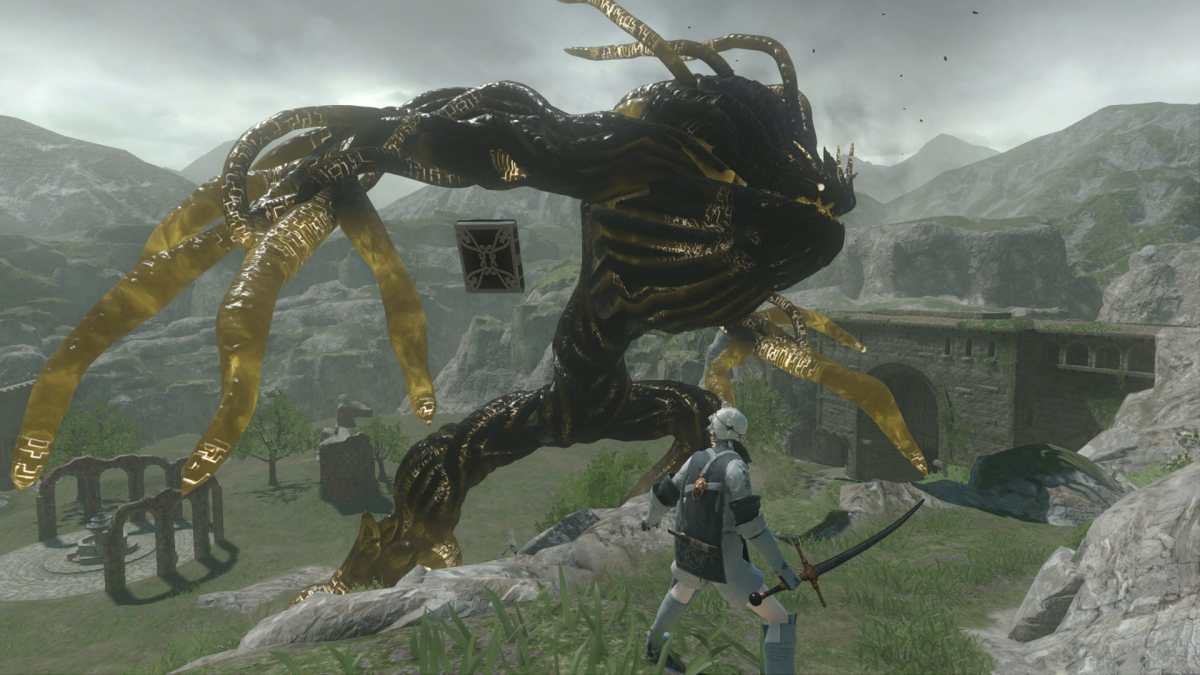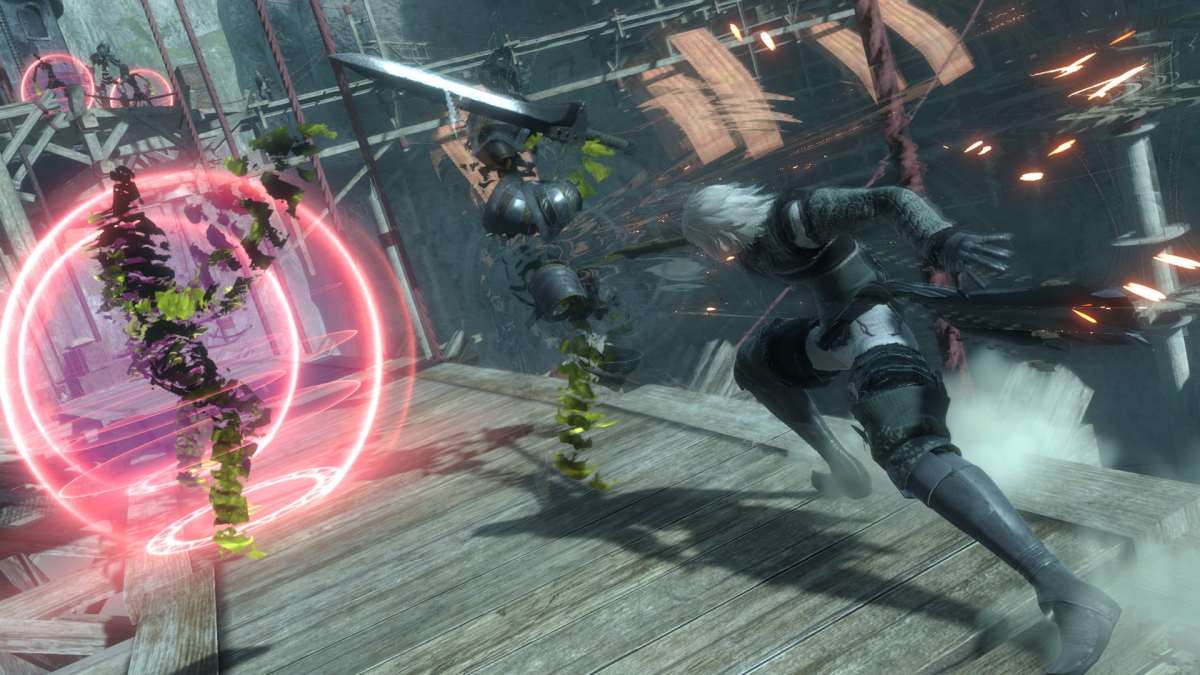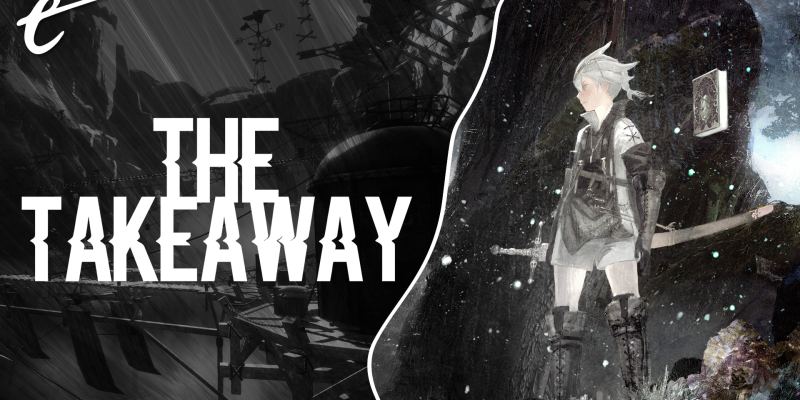Whenever we hear news of another video game remake or remaster, our reactions tend to fall in one of a few different buckets. Joy that we get to experience an updated version of a game we love, excitement that we might get to try something that we missed the first time around, confusion over why this specific game is getting a glow-up, and sometimes anger that a studio or publisher is wasting its time and money on a game that doesn’t need to be remade or remastered. It feels like I saw every single one of these reactions the other week when reports came out that Sony is remaking The Last of Us for PlayStation 5.
But while I understood the avalanche of contrasting hot takes on reworking Joel and Ellie’s trek across America, it admittedly wouldn’t have topped my list of games that could use a fresh coat of paint for a modern audience. But a few weeks later, here comes Nier Replicant, an update of Yoko Taro’s 2010 cult classic, which embodies the exact sort of game that deserves the remake / remaster treatment.
The original Nier was an ambitious, messy, and underplayed gem back in 2010. It’s understandable that it got lost in the shuffle that year, considering what it released alongside. Some of the biggest franchises in gaming were hitting their mid-generation stride and belting out absolute classics, including Call of Duty: Black Ops, Halo: Reach, Mass Effect 2, Assassin’s Creed: Brotherhood, Fallout: New Vegas, StarCraft II, Battlefield: Bad Company 2, and Super Mario Galaxy 2, not to mention Rockstar taking us back in time to the final gasps of the wild west with Red Dead Redemption. It’s no wonder that something equal parts sincere and utterly bizarre like Nier was lost in the shuffle. For more on how it landed back in 2010, check out Elijah’s excellent Second Look on it.

But while 2010 was not kind to the original Nier, 2017 was a much different story for its follow-up, Nier: Automata. For some reason, the time was right, and the series just seemed to click with audiences. It even managed to do this in an incredibly busy year that included Persona 5, Horizon Zero Dawn, Resident Evil 7, Cuphead, Destiny 2, Wolfenstein: The New Colossus, Super Mario Odyssey, and of course The Legend of Zelda: Breath of the Wild debuting alongside the launch of Nintendo Switch. But Automata’s quality, risk-taking, and genuinely unique story that could only be told through the medium of video games shined through, with the game surpassing 5.5 million units in sales this year.
That massive success mixed with the underappreciated nature of the original made Nier Replicant the perfect candidate for a modern remake / remaster. I keep using those two terms simultaneously because the line has really been blurred when it comes to just what exactly these new versions of old games should be called. Trying to clarify what a project is oftentimes feels like a pedantic Rorschach test.
Regardless of what you want to call it, Nier Replicant keeps what worked in the original, including its excellent story, world, and characters, and then both fixes a lot of problems and adds what was missing. The visuals have received a much-appreciated coat of paint, the combat has been upgraded to feel closer to Automata’s, there are some incredible new narrative decisions, and the entire game is now fully voiced. That includes some incredible performances from Zach Aguilar as Young Nier, Liam O-Brien as Grimoire Weiss, and Laura Bailey as Kaine.

Sadly, Nier Replicant doesn’t iron out all the wrinkles of the original. Many of the sidequests are still banal errands made more frustrating by an inability to place map markers, and the fast travel system still remains locked until the back half of your first playthrough — and even then, it’s not nearly as helpful as one would hope. Also, some fans are bummed that you don’t have the choice to play as Papa Nier. If that sentence sounded like gibberish to you, that’s because it kind of is. But these are ultimately minor hiccups in an otherwise fantastic journey that is undoubtedly superior to the 2010 original. And looking at the fact that Replicant debuted at the top of the Steam charts its first weekend, things bode well for the remake.
Nier is truly the type of game that both deserves and clearly benefits from a redo. As a result of the aforementioned circumstances, Nier Replicant is poised to be experienced by a much larger audience as a remake than it was back in 2010. I want to see more smaller, underplayed, and forgotten games brought back like this. I’d take a God Hand, El Shaddai, Skies of Arcadia, Singularity, Viewtiful Joe, Blur, Tokyo Jungle, or Jet Set Radio Future remaster long before something like the Arkham trilogy, Call of Duty: Modern Warfare 3, or any other game that was already massively popular, holds up well, and remains easy to play on modern hardware.
But that doesn’t mean that popular games can’t be successfully remade as well. We’ve seen a lot of them hit incredible highs in recent years. The Crash Bandicoot, Spyro the Dragon, and Tony Hawk collections allowed one generation to recapture its youth, while another experienced these important PlayStation 1-era classics for the first time. Resident Evil 2 invaded our nightmares and showed that the series could still exist in both third-person as well as first. The Legend of Zelda: Link’s Awakening on Switch took the dreamlike Zelda portable experience and turned it into a living diorama. And of course, last year Final Fantasy VII weaponized nostalgia while simultaneously flipping the very definition of remake on its head.

No conversation of remakes and remasters is complete without bringing up Bluepoint Games, who’s become best-in-class at this. It most recently did a fantastic job of this last year with Demon’s Souls. The remake is unequivocally superior to the original, and it felt just as new as a PS5 launch game in 2020 as it did on PlayStation 3 back in 2009. I’d say the developers struck similar magic in 2018 with Shadow of the Colossus, which made a heartbreakingly beautiful game even better.
However, there are some who feel like, despite dramatically improving the controls, visuals, and frame rate, the remake of Shadow of the Colossus loses some of what made the original so special. Sometimes, better graphics doesn’t necessarily mean that a game looks better. We’re seeing a similar thing with the upcoming Mass Effect Legendary Edition. Despite the obvious improvements to combat, menus, and load times, there’s something about the enhanced lighting and visuals that just feels a bit off to some fans.
Remakes and remasters like Nier Replicant are an interesting piece of the overall conversation about video game preservation that was brought up recently with Sony’s decision to shutter the PSP, PS3, and Vita digital storefronts, which has thankfully since been reversed for the latter two. Remakes and remasters aren’t inherently good or bad. Like anything, judging occurs on a case-by-case basis not only for the games themselves, but also the individual player. And given that each year welcomes in a new generation of players to the medium we all love, we’re not going to stop seeing what’s old become new again anytime soon. And in the case of a forgotten gem like Nier Replicant, being able to take a well-deserved curtain call a decade later is a wonderful thing.
